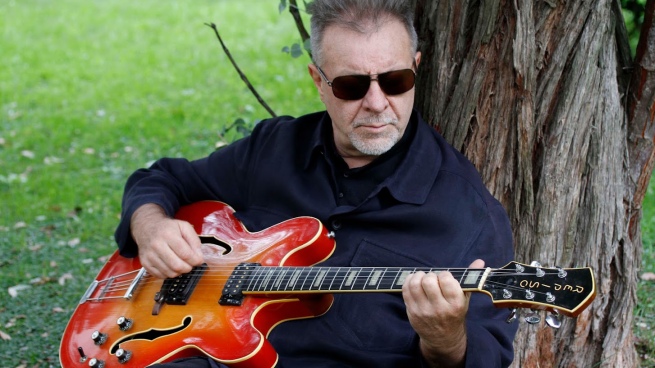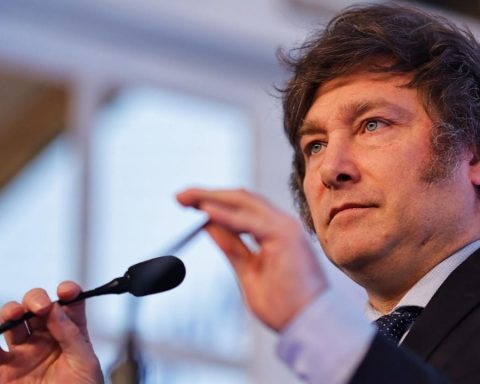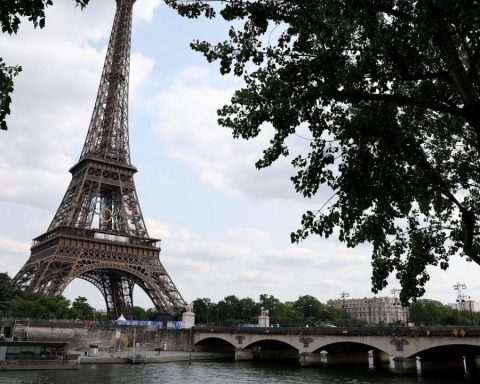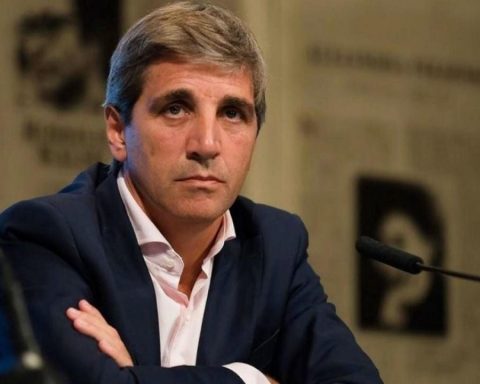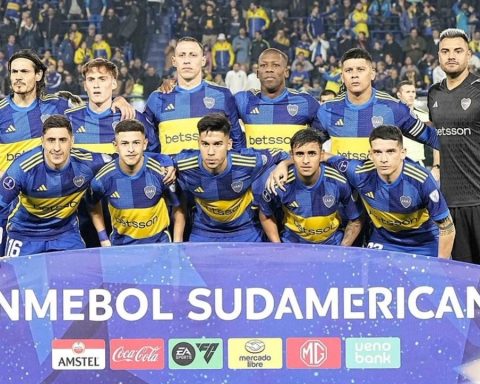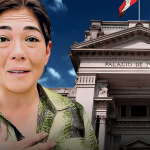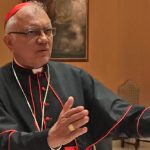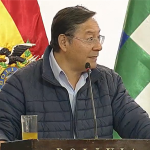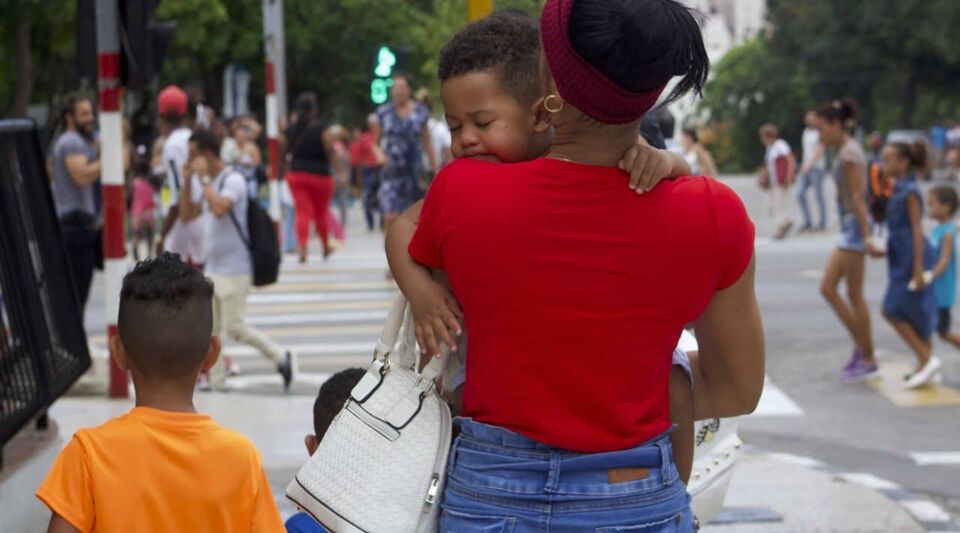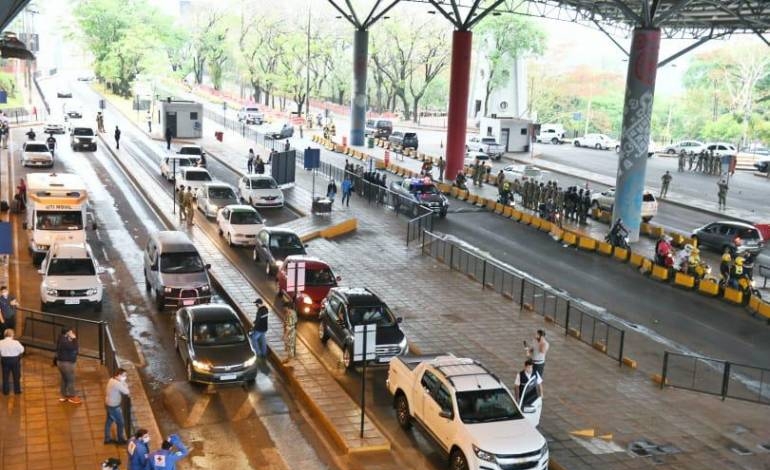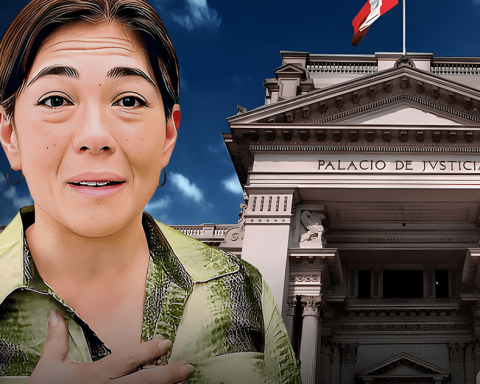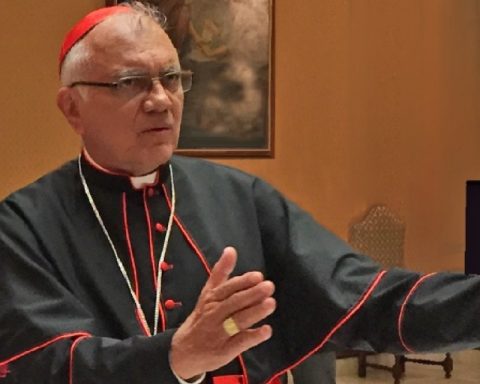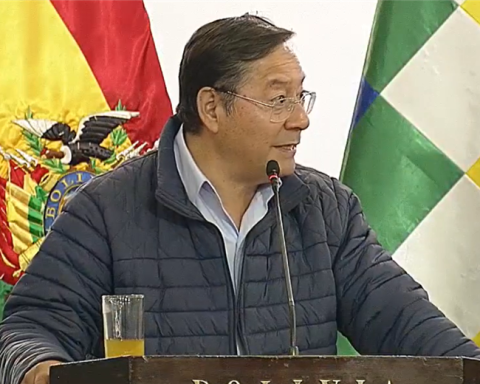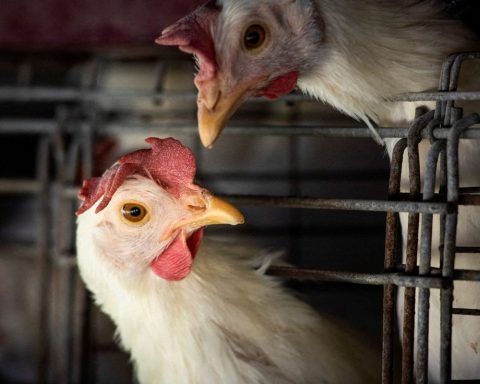A poet-chronicler, the one who captures, the one who radiates, the one who sings because he sees, because he listens; the one who raises his voice and turns it into the prayer of millions: he is the Lion who opened his chest to receive and resounded it in his strings to make him a multitude. And it is, in turn, who sang it with his peers, connecting, sowing, multiplying. These are his melodies and his verses, installed forever in us, along a shared path.
In the land of freedom
Track one from side A (vinyl epochs) that opens the troubadour’s first album, recorded in 1973 and titled “León Gieco”. Raúl Alberto Antonio Gieco had arrived at the age of eighteen from his native Cañada Rosquín, in the province of Santa Fe, shortly before entering a recording studio. This song was one of those that convinced Litto Nebbia that this blond ex-folklorist deserved a hand. A precocious Ara Tokatlián, later the founder of Arco Iris, participated in the album. Another member of the same band, Gustavo Santaolalla, produced the album, naming a society that would turn decades. In his lyrics, animism and protest were already their own brand in the dictatorial context, prior to the return of Perón.
Iron men
From the same first album, a letter so devastating, like the executioners to whom it pointed. And with the soul in hand, the towering poetry: “Sharp points dirty the sky / Like blood on earth (…) People who advance can be killed / But thoughts will remain.” Leon usually tells, with humor and tenderness before his voracious youth, who unconsciously plagiarized in these, the chords of Dylan in “Blowind in the wind”. But the truth is that the Argentine blew his truth even louder: he shouted it at a dictatorship that did not want to leave and that could have killed him.
Jimmy’s mom
One of the few rock and roll songs by the singer with lyrics with a sharp social edge of total validity: “Jimmy’s mother is an Englishwoman / who criticizes this land / but doesn’t realize / that her sheep are in the south”. First song from the first side of the only album (1976) by the supergroup “Porsuigieco” promoted by Charly García. There, León also played with Raúl Porchetto, Nito Mestre and María Rosa Yorio.
The hill of life
Another of the gems covered by groups as dissimilar as Attaque 77, Las Pelotas, Small Reincident Orchestra, among others. León composed it in 1974 and recorded it for the first time on the self-titled album by Porsuigieco (1976). A particular, intimate and testimonial lyric at the same time: “Reality sleeps alone in a funeral / And walks sadly through the dream of the best / Reality dances alone in lies / And in a pocket it has love and joys / A god of fantasies / War and poetry ”. In this record, in duet with the enormous Victor Heredia.
The Canterville Ghost
Only exception in this selected one. A gift from Charly to his friend, the troubadour. It is not from León, but he knew how to make it his to give it the essence of absolute identity. So much so that he even titled “The Canterville Ghost” to his own album (the third) released in 1977. The dictatorship banned the first recorded version. León insisted, recorded it again and was forced to reformulate parts of the lyrics. Here, a great version recorded in 2015 with the National Symphonic Band of the Blind in La Ballena Azul of the Kirchner Cultural Center.
I only ask God
Hymn of hymns in the time of their times. “Disco IV”, year 1978: in the very heart of the darkest dictatorship, León nailed his prayer and turned millions of voices against the “big monster” that stomped so hard and spoke and sang for “all the poor innocence of the people”. Here, doing it with Mercedes Sosa, perhaps the most emotional of the 37 versions that were made in the world of this song, among whom are also those of Víctor Heredia, Bruce Springsteen, Pete Seeger, and the Irish band U2, among others. .
Cachito, champion of Corrientes
Emblematic song about the illusions and impieties of the system. Based on a true story and covered by countless musicians, from Javier Malosetti to Tarragó Ros, through cumbia groups, punk bands from the Buenos Aires suburbs, chamamé groups, folklorists and singers of various genres. According to León himself, “Cachito” and “Only I ask God” were one of those songs “that come out in a day” and, in fact, as Montevideo.com.uy told the Uruguayan media, specifically those two works were composed on the same day and both arrived together to the recording of the famous “4ºLP” by Gieco (1978).
Think of nothing
From his homonymous album, recorded in 1981 and irradiated to the musical circuit with unsuspected reaches. Santaolalla, a visionary, produced it and gave a new sound to the until then Dylanesco folk of León. Here, a collection performance, with Los piojos and Pappo, in the same year of its release, even in the midst of the dictatorship, when León was not shy about singing it: “The city gets big / And more and more dangerous”.
Song for Carito
A gem co-authored with Antonio Tarragó Ros (recorded in 1985 in De Ushuaia a La Quiaca) versioned in many languages, including French, English, Italian, Hebrew. In this record, the two authors of the song add a guest-admirer of the song: David Byrne, the American singer-songwriter who, creator, other things, of the band Talking Heads. In this national radio link, the beautiful story of that song narrated by Tarragó Ros himself.
Charly’s salieris
In line with the proverbial perception of the artist who takes the collective pulse, an open confession: in this case, assuming the not always said voice of the musician pairs and – at the same time – offering a just, well-deserved, homage to the teacher. Released with the album “Messages of the soul” (1992), the milestone also marks the beginning of the compositional relationship with Luis Gurevich; a society that would extend from then to today. In this historical record, from the year 1993, when the LP was just published, León doing the song live, with García himself, at the massive Ferro show.
Five centuries the same
Hymn to the same, to the South American history, and, once again, an overwhelming poetry: “Heartbreak, disagreement / Forgiveness and forgetfulness / Body with mineral / Working peoples / Poor childhoods / Five centuries the same” also from the album “Messages from the soul”. In this version, with Abel Pintos and Andres Giménez (from the Animal band) at Cosquín 2011.
Be careful with the Orozco
Dissemination cut of the album “Orozco” (1997). A kind of monovaric Creole rap with the “o” as the main character. Perhaps, unconsciously, Gieco has represented himself, in the character Rodolfo Orozco; the musician of his fiction and the only non-corrupt brother of the sinister family that makes an acid allusion to a sector of local politics. “I put the votes only for Rodolfo”, saves León in the lyrics. In the official video, again, the Gieco galaxy and its summoned planets: Lalo Mir, Favio Posca, Dady Brieva Leonardo Sbaraglia, Antonio Gasalla, Darío Grandinetti, Miguel Ángel Solá and Enrique Pinti.
The memory
One of the pearls of the album Bandidos Rurales (recorded in the abyss of 2001) that encompasses the very history of injustices and the imperative need to remember: “Everything is loaded in memory / Weapon of life and history / Memory it aims to kill / The peoples who silence it ”. The album itself, where Sixto Palavecino, Charly García, Víctor Heredia, Ricardo Iorio, the Fattoruso brothers, Claudio Marciello, Andrés Giménez, Gustavo Santaolalla, Eduardo Rogatti, Chizzo Nápoli, among others participated, expresses the “Gieco universe” and its thousand colors after the same footprint. Here, in his version in support of the relatives of victims of the AMIA attack, together with Liliana Herrero, Horacio Fontova, Verónica Condomi, Peteco Carabajal, Hilda Lizararzu, Charo Bogarín, Celeste Carballo, Rodolfo Mederos, Víctor Heredia, Luis Pesceti, Ligia Piro, Teresa Parodi, among others.
The angel of the bicycle
“Lower your weapons, here there are only kids eating” says the chronicler-troubadour on the album “Please, forgive me and thank you” (2005). A verse with the powerful synthesis of the greats. The phrase, which stages, testifies, denounces, raw injustice, violence against hunger, belongs to Claudio “Pocho” Lepratti (“The angel on the bicycle” to which the title alludes), a social activist murdered by the Santa Fe police during the 2001 crisis in Argentina. In this version, with the Uruguayan murga Agarrate Catalina, León, again, attentive, permeable, perceptive, takes that combative cry that nevertheless is a cry of peace, and when putting it in the song, amplifies it with the power that the art empowered in the word.
